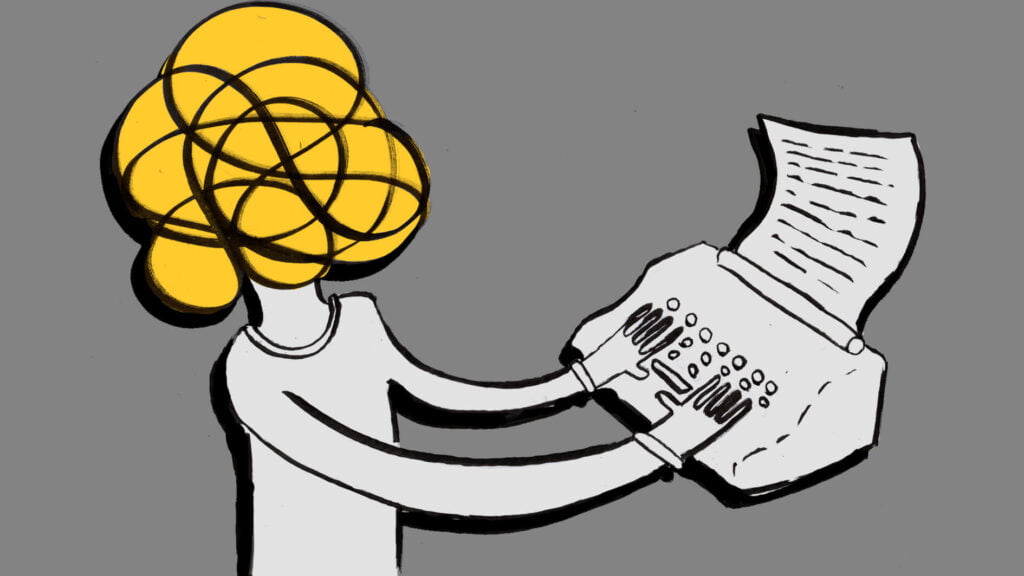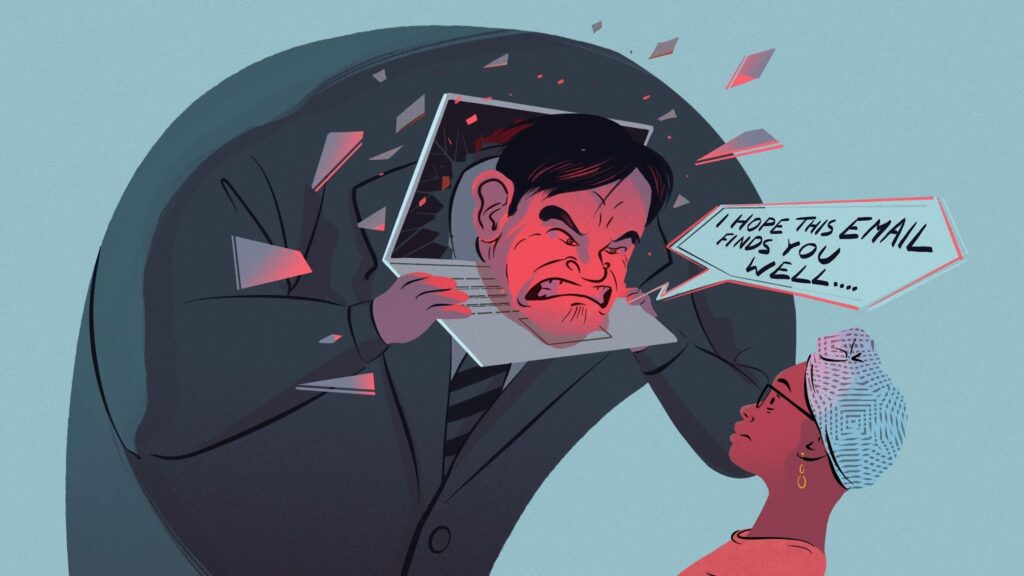I’m writing this piece from a secluded spot just off the east coast of Scotland. This morning I took a long, therapeutic walk along the beach and stopped for a coffee on the way back. I settled down to tackle some writing work at around 2 pm but I’d like to point out that this laidback turn of events isn’t my normal routine, but that’s because I don’t really have a routine as such.
In fact, the flexibility to completely rearrange my schedule is exactly why I chose to go freelance last December. My mental health has been a major concern for the last six years as a result of the nervous breakdown I had in my mid-twenties whilst I worked as a catering manager. I couldn’t work for the best part of a year and now I’ve found my own way to tame the daily symptoms of depression and anxiety.
A few years ago working as a waitress seemed doable, but the constant need to be happy and approachable in front of customers made me ill. Some people use work as a form of distraction during a depressive episode and become so good at faking being OK that they actually see an improvement in their symptoms. Unfortunately I don’t possess that talent, and trying to power through my dark days was making me relapse every few months.
After getting a few months of paid work as a freelance writer I decided to jump ship and try self-employment on for size. I was at breaking point and really needed to work from home, alone. Socialising with people has been incredibly difficult for me since my diagnosis and doing it every day was wearing me out. My body ached. My hair was falling out.
I hoped that working from home would give me the opportunity to rest more and take days off. In reality, I probably work longer hours now that I ever did as a waitress or a manager. A sick day simply means staying in pyjamas and working on my laptop from bed because if I don’t work, I don’t get paid. If I get a last minute commission I will work into the night without question. I carry my laptop with me everywhere just in case I get a commission or I need to make some quick edits before publication. By the time I do go to bed my head is buzzing with ideas and a to-do list which includes pitching, following up on emails, making phone calls, transcribing interviews, scheduling meetings, doing my accounts, sending invoices and of course chasing late payments.
After working for minimum wage as a waitress I concluded there was barely any risk in going freelance because I already earned so little, but it’s not the rate of pay that has surprised me. It’s the inconsistency. On a good day I can earn up to £400 for one piece of work but on a bad day, it’s nowhere near that. I didn’t realise that so much of my monthly income would be in the hands of particular editors and if they move on to another job, the work can dry up quickly.
I always thought that as long I was earning enough to pay my bills through writing, I would be happy. The fear of having to go back to waitressing certainly gives me the motivation to keep pitching my ideas, but I’m also exploring additional income streams. I now have an Etsy shop, run live events and coach small business owners on how to use Instagram. My one guaranteed monthly wage isn’t even a writing job, but instead managing the social media accounts for a video production company.
It’s not all bad of course. The creative side of the job is what keeps me going, and being given the opportunity to talk about mental health on global platforms is really rewarding. I’ve also written a book this year which will be published at the end of November, so even if I have had a stressful year I’ve certainly got something to show for it. I probably won’t make much money from the book itself, but I wouldn’t have had the time to write it if I hadn’t had the flexibility to work from home, so I’m grateful for that. But as for the future of me as a freelancer? I really don’t know. It’s not the slow-paced, stress-free existence that I had hoped for but maybe with anxiety and depression that’s never really going to be a possibility.
I wouldn’t necessarily discourage others with depression and anxiety from the self-employed life, because I still think that it’s still the best option for a lot of people who feel penalised by the traditional, often rigid workplace environment. For those looking to move into freelancing I would say plan ahead as much as possible. Make sure you have at least three months worth of income in the bank as a back up while you find consistent work and don’t ever rely on one main income stream. The reason being that if you lose that one source of you’ll need to do a lot of legwork to make up the difference. I know because this is exactly what happened to me in my first few months of working for myself.
Don’t be afraid to try your hand at new things and take on different jobs to make a little extra cash. The hardest part is adjusting to being your own boss so make sure that you’re a good self-motivator — even on your down days — because otherwise you might find it hard to maintain a steady income. With that said, the last twelve months have really helped me develop my professional skillset in a way that I would never have achieved in my previous role as a catering manager. Working for myself has forced me to brush up on my ability to negotiate, network, seek out new business opportunities, think creatively and collaborate with others so are plenty of reasons why freelancing should be on the agenda for those with mental illness.




